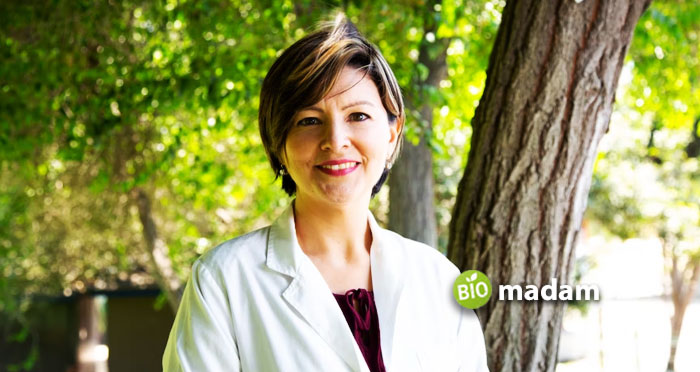Recently updated on January 31st, 2024 at 07:23 am
Few subjects in life are as popular as people’s health and well-being. That’s why folks have regular check-ups or seek advice on getting beach body ready. When you (or a loved one) are ill or feeling under the weather, there’s a good chance you’ll need to see a medical professional. But how do you know which expert to go to for your specific illness? Here are 6 health tips to follow when finding the right medical specialist.
Ask your Regular Doctor for Recommendations
Your doctor is the person who knows you best when it comes to your health, so they’re the ideal person to advise you. They’ll be aware of your medical history and what treatments and medications you’ve received. They should also be up-to-date on the latest information and developments in the medical world. They can provide you with contact information for specialists in your area. They may have a working relationship with some of them and be able to vouch for their abilities.

Your doctor can give you an idea of what to expect from the specialist and what kind of questions to ask. They can offer emotional support during this time and help you navigate the insurance approval process. Finally, they can provide follow-up care and support after your appointment. This includes making sense of the specialist’s diagnosis and recommendations.
Do some Online Research
This is a great way to find out what type of specialist you need and to read about their experience and qualifications. Checking online directories will give you an idea of the specialist’s location, which is important if you want to make sure they’re conveniently located for you.
It’s also possible to read patient reviews. They can give you insights into whether or not past patients were satisfied with the care they received.
It may be that you’re one of the 10 million residents of Michigan, in the upper Midwestern United States. An online search of Associated Endocrinologists in Michigan will explain that they can help with disorders of the thyroid, parathyroid, pituitary, adrenal glands, osteoporosis, and diabetes. If you need on-site thyroid ultrasound, thyroid biopsies, or instant HbA1c testing the website will confirm this for you.
Get a Referral from your Insurance Company
Your insurance company is another great resource to use when looking for a specialist. They likely have a list of doctors that they work with on a regular basis. These doctors will be familiar with the insurance company’s policies and procedures. As such, they’ll be able to help you get the coverage and care that you need in a timely and efficient manner.
You’ll then be able to discover:
- Whether the specialist is in-network or out-of-network.
- The specialist’s credentials, training, and experience.
- Whether the specialist has any disciplinary actions against them.
- The specialist’s office hours and location.
- Whether the specialist has any language barriers.
- Whether they’re taking new patients.
Get a Second Opinion
This is when an individual sees another doctor for confirmation (or additional information) about a diagnosis or treatment plan. There are several reasons you might seek a second opinion. You may not feel comfortable with the first doctor’s diagnosis. You may also want to explore all treatment options and be certain that you’re doing everything possible to treat your condition. This is especially important if you’re considering a major treatment or surgery.

Getting a second opinion is easier than ever before. With the advent of telemedicine, you can now consult with doctors anywhere in the world without having to travel. Many insurance companies will also cover the cost of a second opinion if you request it. If you proceed with this option, bring all your medical records with you. This will give the new doctor a complete picture of your condition and allow them to make the best recommendation for treatment.
Schedule a Consultation
If you’re looking for a new medical specialist, a consultation will give you a chance to meet the doctor and see if they’re a good fit for you. It’s important to make sure you understand the reason for the consultation (in terms of goals and what you hope to accomplish). Be prepared to discuss your medical history because the more information the doctor has, the better they can help you. Don’t be afraid to speak up and ask questions about anything you don’t understand.
Ask about the doctor’s experience and training, and find out how they would treat your specific condition. Be honest about your concerns, such as the risks and potential side effects of each treatment. After the consultation, be sure to reach out to the doctor if you have any lingering or unanswered questions. Finally, you should get a feel for the doctor’s bedside manner and trust your gut. If you don’t feel comfortable with them, it’s probably wise to check out someone else.
Make a List of your Symptoms and Concerns
Your body is constantly changing over time, so your signs and symptoms may be varying as well. It’s therefore important to keep track of both so you can have an accurate picture when sharing with your doctor. This will enable you to be as specific as possible about your concerns. It will also help your doctor narrow down a diagnosis more quickly. This is because you may be describing tell-tale signs of a specific condition.
Here are some practical suggestions:
- Making a summary of all the medications you’re currently using
- Keeping a calendar of when you experience certain symptoms
- Writing down key points from previous doctor’s visits
- Tracking changes in your weight
- Noting any new or worsening symptoms
- Keeping a food journal
- Recording your energy levels throughout the day
- Identifying any triggers for your symptoms
If a family member, friend, or colleague has experienced similar health issues to you, they may be able to recommend a good specialist. Thanks to these helpful tips you should soon be able to find the best person to help you. They can then use their knowledge, expertise, and experience to get you feeling better than ever before.

Hi, they call me Jenna, and I am also known for achieving a gold medal during my Ph.D. in science life. I always had a dream to educate people through my utmost writing hobby. So, I chose this blogging path, and Biomadam gave me this opportunity to present for them. I now stand to entertain you. Continue reading my articles & discuss if you’ve any confusion through the comment section below.

